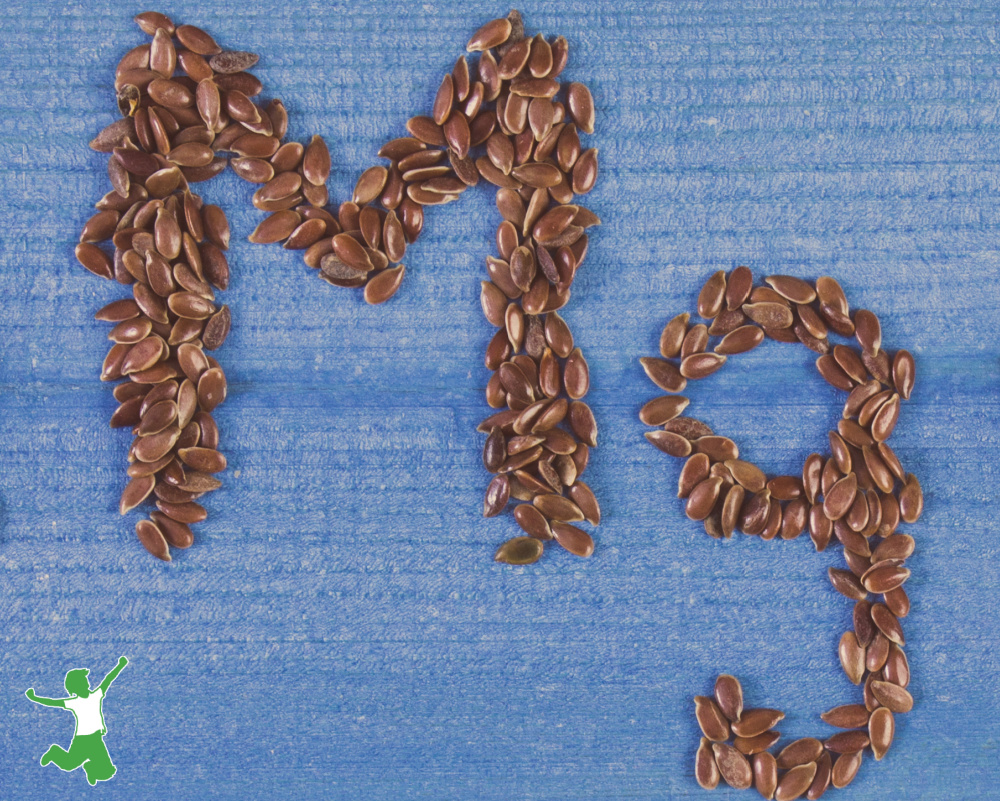How to know if you need more magnesium and which forms of supplementation are best to consider that will not cause uncomfortable side effects such as loose stools from lack of absorption.

The gradual yet precipitous depletion of agricultural soils around the world over the past century has resulted in a magnesium deficiency epidemic that is, sadly, largely unrecognized by modern medicine.
This health crisis is primarily due to the widespread use of chemical fertilizers containing nitrogen, phosphorus, and potassium (“NPK”) is an antagonist to magnesium in the soil.
Depending on the type of soil, magnesium becomes bound and unavailable for uptake by the crop or may be leached from the soil entirely. (1)
The result is that magnesium is one of the most depleted minerals in agricultural soils around the globe. This means that any food grown in that soil will be low in magnesium as well.
To add insult to injury, the constant stresses of modern life deplete magnesium very quickly in the body.
Thus, despite the fact that we need more magnesium today than ever before, there is less of it to be had in our diet.
Even those following a careful traditional diet today commonly find themselves to be deficient in magnesium.
This includes a menu plan that eschews refined salt in favor of magnesium-rich sea salt, homemade bone broths, sea vegetables, and other magnesium-rich foods. (2)
Signs of Magnesium Deficiency
When it comes to magnesium, constipation is the usual symptom most people know about.
However, according to Nora Gedgaudas, author of Primal Body, Primal Mind, the list of ailments that can be directly or indirectly linked to magnesium deficiency is extremely long. (3)
In fact, the list is so long that many people even those who are extremely health-conscious have no idea that their health challenges could be ameliorated simply by getting more magnesium.
- ADD/ADHD
- Alzheimer’s
- Angina pectoris
- Anxiety disorders
- Arrhythmia
- Arthritis—rheumatoid and osteoarthritis
- Asthma
- Autism
- Auto-immune disorders
- Cerebral palsy (in children of magnesium-deficient mothers)
- Chronic Fatigue Syndrome
- Congestive Heart Failure
- Constipation
- Crooked teeth/narrow jaw in children (from mothers that are magnesium deficient)
- Dental caries
- Depression
- Diabetes Type I and II
- Bulimia and anorexia
- Fibromyalgia
- Ulcers, Crohn’s disease and colitis
- Heart disease
- High Blood Pressure/Hypertension
- Hypoglycemia
- Insomnia
- Kidney stones
- Lou Gehrig’s disease
- Migraines
- Mitral valve prolapse
- Multiple sclerosis
- Muscle cramping, weakness, fatigue
- Myopia—in children from Mg-deficient mothers
- Obesity—especially associated with a high carbohydrate diet
- Osteoporosis
- Parkinson’s disease
- PMS—including menstrual pain and irregularities
- PPH (Primary pulmonary hypertension)
- Reynaud’s syndrome
- SIDS (Sudden Infant Death Syndrome)
- Stroke
- Syndrome X
- Thyroid disorders
In addition to the above list, recent research indicates that magnesium deficiency can make the negative health effects of EMF exposure (now at excessive levels nearly everywhere) even more damaging.
Nearly EVERYONE Benefits from More Magnesium
The double whammy of greatly reduced magnesium in our food combined with the magnesium-depleting stress of modern life means that nearly everyone can benefit from magnesium supplementation.
**This especially includes children.
Another shocking factoid about magnesium is that only a small percentage of the magnesium in food is actually absorbed even under the best of digestive conditions. (4)
This brings the importance of bioavailable magnesium supplementation even more into focus.
The good news is that experimenting with various the types of magnesium supplements outlined below is a safe process.
The time you take to figure out which is best for you is SO WORTH IT, because getting sufficient magnesium can result in genuinely life-altering improvements!
The question is, what type of magnesium is optimal?
There is a confusing array to consider from over-the-counter brands to a variety of tablets, capsules, liquids, and even transdermal magnesium products.
Which are effective and which should you actively avoid entirely? Below is the rundown and the pros and cons of each.
Magnesium Hydroxide
For those who suffer from constipation due to magnesium deficiency, over-the-counter products that contain magnesium hydroxide like Milk of Magnesia are very popular.
Doctors frequently recommend them due to widespread availability and low cost.
Unfortunately, these products also contain toxic additives including artificial colors and GMO citric acid.
Magnesium hydroxide also reduces stomach acid, which reduces the absorption of nutrients in food and can predispose a person to gastrointestinal bugs and food poisoning.
When it comes to supplementing with magnesium, avoiding this class of products entirely is wise.
Magnesium Salt Chelates
Perhaps the most common forms of supplemental magnesium on the market are salt chelates such as magnesium citrate or malate.
Easy-to-use flavored liquids in supermarkets and pharmacies are popularly advertised for laxative purposes. Avoid these!
There are also excellent brands of supplemental magnesium citrate in powder and capsule form (such as this brand).
While safe and well absorbed, this type of magnesium can cause diarrhea in some people. Even half or a quarter of the recommended dose can cause loose stools.
Diarrhea from magnesium supplements is a sign that little is being absorbed by the body and is simply being excreted with insufficient beneficial effect.
If magnesium salt chelates do not cause loose stools for you, they are certainly one of the most cost-effective and safe ways to supplement.
Ionic Magnesium
Magnesium readily dissolves in water. This solubility results in it being highly prevalent in seawater with only sodium and chloride being more abundant.
Thus, ionic forms of magnesium (with no additives) are an excellent supplemental source of this mineral. This brand is a good one to consider.
Ionic magnesium is the form that I use myself. I am extremely sensitive to oral magnesium having relied most of my life on transdermal forms (discussed below).
Fermented
Some people find that tablets of fermented magnesium (as magnesium bisglycinate) are well absorbed and don’t cause loose stools.
The benefits of this form of magnesium are that they are convenient and low dose, which is all that some people need.
However, others need considerably higher amounts on a daily basis to alleviate deficiency symptoms, and taking more than one or two tablets is hard for some people to swallow (literally).
Transdermal
There are many types of magnesium-based personal care products available to improve nutrient status via the skin.
While these products do work well, be aware that those with sensitive skin may experience itchiness or burning after application.
In those situations, a bath of Epsom salts (magnesium sulfate) or magnesium flakes (magnesium chloride) are good alternatives that don’t cause these issues.
Magnesium is readily absorbed by the skin, and bathing is a relaxing way to increase levels naturally.
Note that magnesium is not stored well in the body, so if you rely on transdermal forms, you will need to consistently keep up with this practice year-round.
For example, I don’t enjoy hot baths during warmer months and other forms make my skin itch, so I rely on ionic magnesium (see above) during summer.
Homeopathic Magnesium
When all other forms of magnesium supplementation do not produce good results, homeopathic magnesium can be just what the doctor ordered.
Magnesia phosphorica 6X is the cell salt to look for.
As a bonus, this type of magnesium can help as a remedy for muscle spasms and cramping.
Mag phos is less likely than other forms of oral magnesium to cause loose stools for those who are susceptible.
The absence of this side effect is a positive sign that your body is absorbing the magnesium properly.
Split the Dose for Best Results
Whatever type of magnesium supplement you ultimately choose, it is a good idea to split the dose as recommended by Carolyn Dean MD, ND, author of The Magnesium Miracle. (5)
Dr. Dean recommends taking your first dose early in the morning and another in the late afternoon. This suggestion corresponds to times of day when magnesium levels are low in the body.

(1, 2, 4) Magnificent Magnesium
(3) Primal Body, Primal Mind
(5) The Magnesium Miracle








I take good ol’ Magnesium Chloride in powder form, ingested orally. You mix it with water or diluted juice (or wheat grass juice powder) to reduce the taste, and Bob’s yer uncle. This supplement stopped my leg cramps in the morning. I honestly don’t understand why people are trying to take magnesium by way of an oil on the skin. It causes itching and is generally bothersome compared to either a powder or a tablet.
An added benefit of MgCl2 is all that chloride, which is necessary for the formation of hydrochloric acid (stomach acid) especially in old-ish people. Right or wrong, some people use minimal salt, a source of chloride.
Here is some info on magnesium chloride:
https://www.scribd.com/document/715698281/Magnesium-article-by-Walter-Last-from-Nexus-magazine
Thank you for your article.